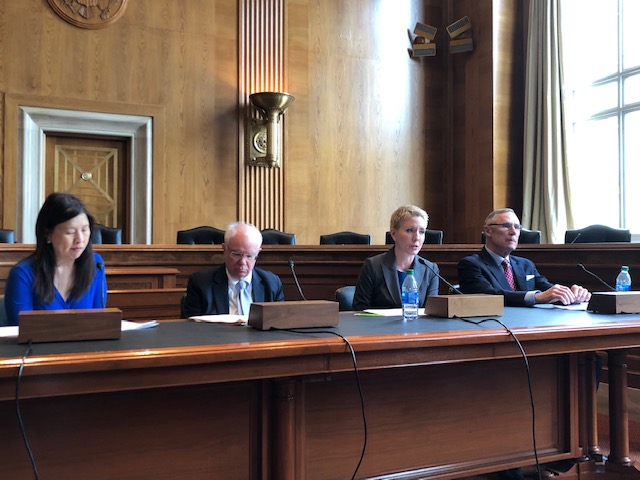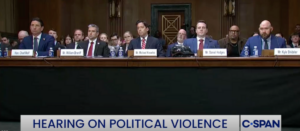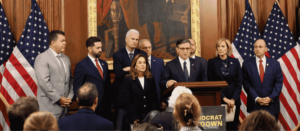Last week Concerned Women for America was on Capitol Hill advocating for the proper role of foreign policy in protecting human rights. The CWA and Heritage Foundation cosponsored panel was featured by Faith and Law and titled “Divisible, Not Incompatible: Strengthening Human Rights by Preventing Their Politicization”. CWA’s Vice President of International Affairs Dr. Shea Garrison spoke about U.S. leadership in international human rights advocacy along with Emilie Kao from Heritage Foundation, Benjamin Bull Esq. of the National Center on Sexual Exploitation and Dr. Aaron Rhodes, President of the Forum for Religious Freedom-Europe.
The hour-long panel explained to Hill staff members how in international human rights advocacy, God-given, natural, or unalienable rights (like religious freedom, freedom of speech and conscience) are increasingly being conflated with manufactured “rights” that are in actuality only the social and economic goals of particular interest groups.
Today so many organizations advocate in the name of “human rights” that economic and social goals are often confused with fundamental or unalienable rights. This is a problem leading to less individual freedom, not more. Dr. Aaron Rhodes’ book, The Debasement of Human Rights: How Politics Sabotage the Ideal of Freedom, identifies and explains this dangerous trend in the international human rights movement.
Examples of advocacy for social or economic goals in the name of “human rights” include: the right to a clean environment, the right to a free university education, the right to free internet access, the right of a biological male to compete on women’s sports teams, the right to legalized abortion, and even the right not to be offended. As individuals, we all have different opinions about whether these goals are desirable or even valuable. Panel members pointed out that by primarily protecting our “natural” human rights, we also protect the freedom to pursue our different political goals and ideological preferences.
Panel members also explained that confusion about fundamental rights can be dangerous, as it offers cover to authoritarian and totalitarian governments who provide economic and social benefits to citizens as a demonstration of their support for “human rights.” But these governments, like China and Venezuela, at the same time continue to oppress fundamental unalienable rights like religious liberty, freedom of the press, or free speech. As the Declaration of Independence states, the purpose of government is to secure unalienable rights and any government that does not is illegitimate.
To help clarify the difference between God-given natural rights and economic and social goals, Secretary Pompeo recently announced the U.S. Commission on Unalienable Rights to ground U.S. foreign policy on human rights in America’s founding principles. The Declaration of Independence and the U.S. Constitution, as well as the 1948 Universal Declaration of Human Rights (UDHR) are guides for the commission.
The panel ended with suggestions as to how the U.S. can best shape human rights policy and strategy and how natural rights are best protected when they are protected for all, not for members of particular identity groups. In addition, Dr. Garrison discussed how robust protection of natural rights, such as religious freedom, can ultimately lead to economic and social prosperity.
Read Dr. Shea Garrison’s Washington Times Article “How China is home to the worst human rights crises of our time’: It’s why the U.S. Commission on Unalienable rights is so necessary.”






